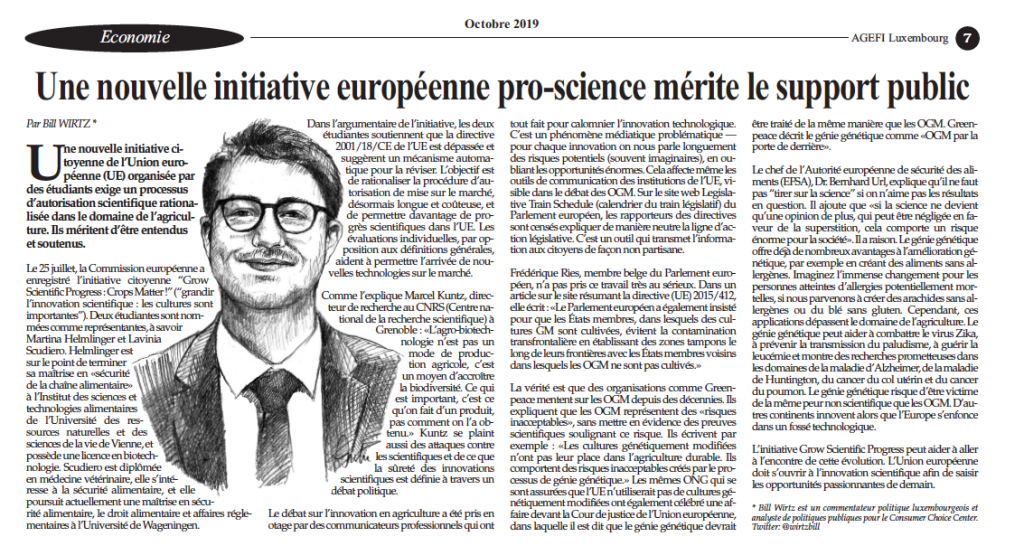Bauernfängerei durch Urintests
In Frankreich finden sich Glyphosat-Rückstände im Urin von Bauern. Ungefährlich, weil weiter unter den Grenzwerten. Trotzdem werden solche Resultate für die Öko-Stimmungsmache genutzt.
Wenn Sie noch nie von „Glyphosat-Pissern” gehört haben, dann erwartet Sie bei einem Blick in die aktuellen Ausgaben französischer Zeitungen eine wilde Lesereise. Seit April 2018 haben 6000 Landwirte Glyphosat in ihrem Urin „gefunden“, das über dem Grenzwert für Trinkwasser liegt. Dieser ist auf 0,1 Mikrogramm pro Liter festgelegt. „Nur drei Teilnehmer lagen unter diesem Wert”, sagte ein 66-jähriger Umweltaktivist der französischen Zeitung Libération. Diese Aktivisten haben die französischen Bauern davon überzeugt, dass durch das Verklagen von Pestizidproduzenten möglicherweise viel Geld zu holen ist. Nichts scheint attraktiver sein, als zu versuchen, Millionen Euro an Schadenersatz zu kassieren, wie es in den Vereinigten Staaten bereits passiert ist.
Über 1.500 Beschwerden über „Glyphosatpisse” wurden wegen „Gefährdung des Lebens anderer”, „Täuschung” und „Umweltschäden” eingereicht. Die französische Kampagnengruppe Campagne glyphosate behauptet auf ihrer Website, dass 100 Prozent der Tests positiv ausgefallen seien. Überhaupt kein Risiko, liebe Bauern, unterschreiben Sie einfach hier! Die Kosten für den Test und die Beschwerdeeinreichung belaufen sich auf 135 Euro.
Bei den 100 Prozent müssten eigentlich die Alarmglocken läuten, denn neu ist diese Zahl nicht. Zumindest nicht für Deutsche. Im Juni 2015 ließen die deutschen Grünen 16 Proben von Muttermilch in Deutschland analysieren, mit 100 Prozent positiven Ergebnissen auf Glyphosat. Die Geschichte wurde mithilfe der Medien groß aufgemacht und löste bei stillenden Müttern große Verunsicherung aus. Kurz darauf wurden im Rahmen der Kampagne „Urinale” der Bürgerinitiative Landwende 2000 Urinproben von deutschen Bürgern analysiert. Diesmal waren 99,6% der Ergebnisse positiv.
“Laut Bundesinstitut für Risikobewertung liegen Glyphosatrückstände in der Muttermilch nicht über den gesetzlichen Grenzwerten.“
Im Mai 2016 ließ die Fraktion der Grünen im Europäischen Parlament den Urin von 48 Mitgliedern des Europäischen Parlaments testen, ebenfalls mit 100 Prozent positiven Ergebnissen. Im März 2017 wurden 27 Urinproben von dänischen Müttern und Kindern analysiert, auch hier wieder mit 100 Prozent positiven Ergebnissen.
An den aktuellen Tests ist BioCheck, das 1997 von Monika Krüger mitgegründete Forschungslabor mit Sitz in Deutschland, maßgeblich beteiligt. Frau Krüger selbst ist eine Anti-Pestizid-Aktivistin. Nicht unbedingt eine gute Voraussetzung für solide und objektive Forschungsarbeit. Aber gut, Tests sind schlussendlich Tests, oder? Nicht ganz.
Nehmen wir die 16 Proben von Muttermilch, die zu 100 Prozent kontaminiert waren? Das Bundesinstitut für Risikobewertung (BfR) bestätigte, dass es keinerlei Beweise dafür gibt, dass Glyphosatrückstände in der Muttermilch über den gesetzlichen Grenzwerten liegen. Die beiden vom BfR in Auftrag gegebenen unabhängigen Studien wurden in einem Artikel für das Journal of Agricultural and Food Chemistry zusammengefasst. Sie verwendeten die Flüssigkeitschromatographie in Verbindung mit der Massenspektrometrie (LC-MS/MS) oder die Gaschromatographie in Verbindung mit der Massenspektrometrie (GC-MS/MS) – Verfahren, die nach Angaben des BfR zehnmal vertrauenswürdiger sind als Standardtests zum Nachweis von Pestiziden und 75-mal vertrauenswürdiger als die von BioCheck.
BioCheck hatte einen ELISA-Test eingesetzt, um zu seinen Schlussfolgerungen zu kommen. Dieser enzymgebundene Immunosorbent-Assay ist ein Test, der Antikörper in Ihrem Blut nachweist und misst. Dem Bundesinstitut für Risikobewertung zufolge sei der Nachweis von Glyphosat an sich ein grundlegend kompliziertes Unterfangen und ELISA dafür kein geeigneter Weg sei. Marcel Kuntz, Forschungsdirektor am CNRS (Centre national de la recherche scientifique) in Grenoble, sieht in ELISA ebenso wenig einen genauen Test zum Nachweis von Pestiziden.
“Horrorgeschichten über ‚giftige Rückstände‘ in unserem Körper sollen Angst und Misstrauen hervorrufen.“
Deshalb hat BioCheck wahrscheinlich nur 75 Euro für ihre Urintests berechnet. Man bekommt immer das, wofür man zahlt. Schlagzeilen über gefährliche Milch oder allgemein gefährliches Essen wurden bereits geschrieben und veröffentlicht, ohne Korrektur. Wo liegt dann jetzt noch das Problem? Fakt ist: Wir haben es mit einer gründlichen Perversion wissenschaftlicher Methoden zu tun. Die Tests dienen hier nur zu Propagandazwecken. Was die Aktivisten den Bauern wohl auch verschwiegen haben: Der Grenzwert für Trinkwasser liegt sehr viel niedriger als die Grenzwerte für die unbedenkliche Aufnahme von Pestiziden. Als in Deutschland versucht wurde, Mütter durch den Nachweis von Glyphosat in Muttermilch in Panik zu versetzen, zeigte sich, dass ein vier Kilogramm schwerer Säugling der am stärksten belasteten deutschen Mutter 2778 Liter Muttermilch pro Tag trinken müsste, um den Grenzwert zu überschreiten. Hätte man den Grenzwert der Weltgesundheitsorganisation genommen, wären es sogar 9260 und beim US-Grenzwert 16.200 Liter. In den USA liegt der Grenzwert für Trinkwasser aus diesem Grund 7000-mal höher als in der EU.
Tatsächlich würde man mit sehr aufwändigen und entsprechend leistungsfähigen Tests tatsächlich Glyphosatspuren im Urin französischer Bauern nachweisen können. Einfach deshalb, weil man mit diesen extrem empfindlichen Methoden überall auf der Welt Glyphosatspuren nachweisen kann. Da wir mit der Nahrung sehr geringe Mengen Glyphosat aufnehmen, scheiden wir es mit dem Urin (glücklicherweise) auch wieder aus. Nur sagt das rein gar nichts über eine Gesundheitsgefährdung aus.
Wir wissen, dass Glyphosat ungefährlich ist: Wenn wir uns die wissenschaftliche Literatur ansehen, stellen wir fest, dass es sich um ein Herbizid handelt, das sicher zu verwenden und für die moderne Landwirtschaft notwendig ist. Horrorgeschichten über „giftige Rückstände” in unserem Körper sollen Angst und Misstrauen hervorrufen, leider mit großem Erfolg. Viele Staaten geben dem Druck nach und haben entsprechende Produkte verboten. Für diese Aktivisten ist es nicht von Interesse, verlässlichere Tests mit Bezug auf gesundheitsrelevante Grenzwerte in Betracht zu ziehen. Ihnen geht es nur darum, Stimmung zu machen, weil sie damit vor Gericht Klagen gewinnen und die Öffentlichkeit für ihre unwissenschaftlichen Ansichten begeistern können. Das ist eine Schande.











